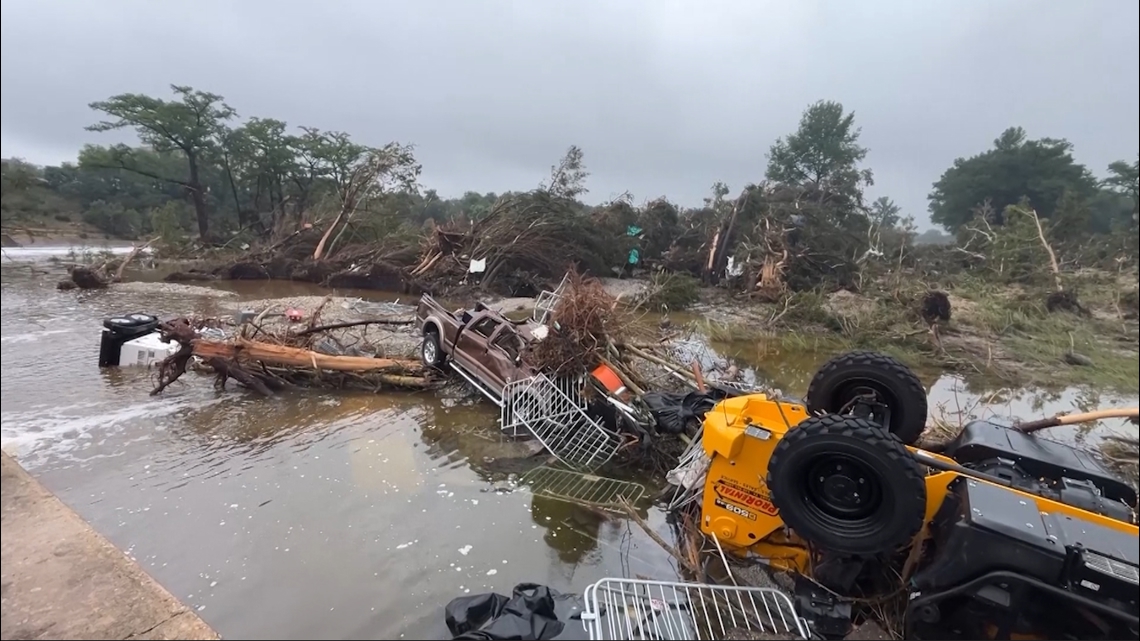
A Texas senator talks about what the legislature can and can’t do as lawmakers look for answers following the July 4th flooding disaster.
SAN ANTONIO — Texas lawmakers will start hearings on the disastrous July 4th flooding Wednesday at 9 a.m. Exactly who will show up for questioning has yet to be released.
Both the Texas House of Representatives and the Texas Senate formed a select committee called “Disaster Preparedness and Flooding” for the special session. The two committees will meet jointly on Wednesday to hear testimony and lawmakers on both sides of the isle have promised to look for answers.
“The creation of both the House and Senate’s Select Committees on Disaster Preparedness and Flooding is just the beginning of the Legislature looking at every aspect of this tragic event,” said Lt. Gov. Dan Patrick back on July 10. “Right now, we must focus on the recovery of those still missing, then rebuilding communities in flooded areas. In the coming year, and into the next regular legislative session, we will gather all the facts and answer the many questions to which the public demands answers.”
Texas Senator José Menéndez, which represents a district in San Antonio, will be one of the lawmakers asking questions.
“Hopefully we will bring in all the state agencies and hopefully some local agencies that had any responsibility in an emergency response. I think it’s important for us to understand what the protocols are,” Menéndez said. “The only way we improve is by asking tough questions by, not necessarily having a lynching, but getting to the truth of the matter.”
At the same time, it’s not clear who will be there to answer questions. Not every lawmaker on the committee can ask someone to show up and officials can, technically, just choose not to come to Austin.
First, only the chairperson of each committee has the ability to ask people to come and testify. Other lawmakers can make requests, but the chair always makes the call.
“The chair of the committee has jurisdiction,” Menéndez said. “We can ask the chair. I personally, and I’m sure others, will ask that people who had a role to play in a response to an emergency… we need to have a clear picture of what happened.”
Second, the committees do not have the power of a court. Lawmakers can’t make local leaders show up if they don’t want to talk. They also can’t force county officials to produce records. With the recovery effort still underway in multiple Texas counties, some local officials may simply decline to show up if they are still solving problems at home.
If local officials can’t show up on Wednesday, however, the committee will try to come to them. Lt. Governor Dan Patrick has already said the committees will meet again, in Kerrville, on July 31st. Menéndez said that meeting might be even more important.
“I expect, at that time, we would get a chance to not only hear from the citizens that were impacted but from their leaders in the community. Whether it be the mayor, the county judge, the sheriff, the emergency response coordinator, I think it’s important for us to hear from the people in charge of responding to see what we could do better in the future, what exactly happened, and tell us where the systemic breakdowns were.”
Other lawmakers have already started filing bills related to the flooding and devastation. Some would revise warning systems while others would develop a guide on preparing for and responding to flood disasters for civic, volunteer and community organizations. Lawmakers have also talked about finding money to help pay for a siren system in Kerr County.
Menendez told KENS 5 he doesn’t want a witch hunt, but there will be tough questions as lawmakers try to find out what they can do to improve safety in the state.
“The only way you improve and overcome obstacles is you confront them head-on,” Menéndez said.
